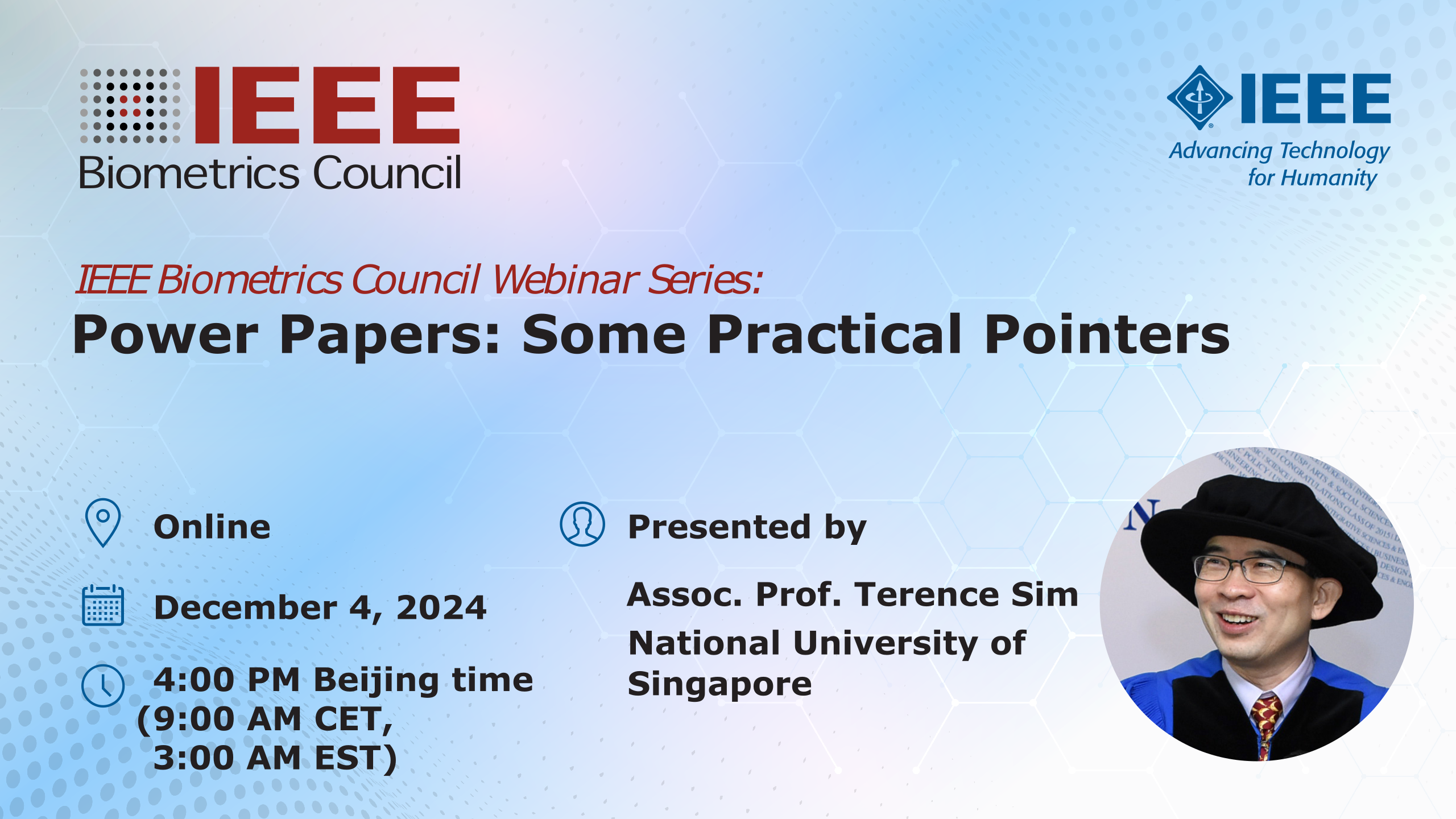Title: Power Papers: Some Practical Pointers
Speaker: Dr. Terence Sim, National University of Singapore
When: December 4, 2024 at 4:00 pm Beijing Time (9:00 am CET, 3:00 am EST)
Where: Online (Zoom)
Recording of the Webinar
Abstract
Writing a good research paper requires effort, especially when there is a page limit. Yet this skill is required of every researcher, who, more often than not, fumbles his or her way through. Good grammar is only a start. Care and craft must be applied to turn a mediocre paper into a memorable one. Writing skills can indeed be honed. In this abridged talk, our speaker will highlight the common mistakes many researchers make, and offer practical pointers to pack more punch into your paper. Needless to say, the talk will be biased: our speaker will speak not from linguistic theories but from personal experience, sharing what has, and has not, worked for him. Two major sections of a technical paper will be covered: the Title and Introduction. The speaker will discuss the purpose of each section, present common mistakes, and provide concrete examples of good writing. The intended audience is the graduate student writing his/her first paper, but everyone is welcome. Seasoned writers are encouraged to share their experience of how they improved their writing.
About The Speaker
Dr. Terence Sim is an Associate Professor at the School of Computing, National University of Singapore (NUS). He is also Vice Dean for the NUS Office of Admissions. Over 2 decades, Dr. Sim has conducted research in Biometrics, Computer Vision, Computational Photography, and Privacy in Images. He served as Second Vice President in the International Association for Pattern Recognition from 2020 to 2022, and is still chairing a committee there. He is also active in the IEEE Biometrics Council, where for the past two years he chaired the Selection Working Group for the annual awards given by the Council. Dr. Sim obtained his PhD from Carnegie Mellon University in 2002, his MSc from Stanford University in 1991, and his SB from the Massachusetts Institute of Technology in 1990.




